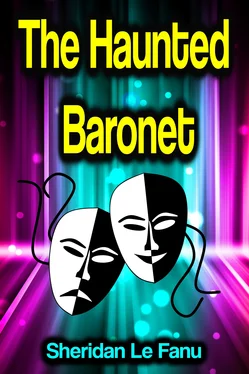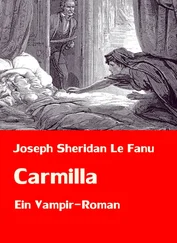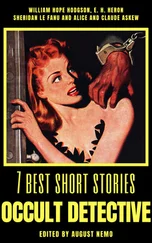“That’s quite right, that’s spoken like a wise lad; only I don’t say you’re to blame, nor no one; for folk can’t help frettin’ sometimes, no more than they can help a headache — none but a mafflin would say that — and I’ll not deny but he has dowly ways when the fit’s on him, and he frumps us all round, if such be his humour. But who is there hasn’t his faults? We must bear and forbear, and take what we get and be cheerful. So chirp up, my lad; Philip, didn’t I often ring the a’d rhyme in your ear long ago?
“Be always as merry as ever you can,
For no one delights in a sorrowful man.
“So don’t ye be gettin’ up off your chair like that, and tramping about the room wi’ your hands in your pockets, looking out o’ this window, and staring out o’ that, and sighing and crying, and looking so black-ox-trodden, ‘twould break a body’s heart to see you. Ye must be cheery; and happen you’re hungry, and don’t know it. I’ll tell the cook to grill a hot bit for ye.”
“But I’m not hungry, Mrs. Julaper. How kind you are! dear me, Mrs. Julaper, I’m not worthy of it; I don’t deserve half your kindness. I’d have been heartbroken long ago, but for you.”
“And I’ll make a sup of something hot for you; you’ll take a rummer-glass of punch — you must.”
“But I like the tea better; I do, indeed, Mrs. Julaper.”
“Tea is no drink for a man when his heart’s down. It should be something with a leg in it, lad; something hot that will warm your courage for ye, and set your blood a-dancing, and make ye talk brave and merry; and will you have a bit of a broil first? No? Well then, you’ll have a drop o’ punch? — ye sha’n’t say no.”
And so, all resistance overpowered, the consolation of Philip Feltram proceeded.
A gentler spirit than poor Feltram, a more good-natured soul than the old housekeeper, were nowhere among the children of earth.
Philip Feltram, who was reserved enough elsewhere, used to come into her room and cry, and take her by both hands piteously, standing before her and looking down in her face, while tears ran deviously down his cheeks.
“Did you ever know such a case? was there ever a fellow like me ? did you ever know such a thing? You know what I am, Mrs. Julaper, and who I am. They call me Feltram; but Sir Bale knows as well as I that my true name is not that. I’m Philip Mardykes; and another fellow would make a row about it, and claim his name and his rights, as she is always croaking in my ear I ought. But you know that is not reasonable. My grandmother was married; she was the true Lady Mardykes; think what it was to see a woman like that turned out of doors, and her children robbed of their name. O, ma’am, you can’t think it; unless you were me, you couldn’t — you couldn’t — you couldn’t!”
“Come, come, Master Philip, don’t you be taking on so; and ye mustn’t be talking like that, d’ye mind? You know he wouldn’t stand that; and it’s an old story now, and there’s naught can be proved concerning it; and what I think is this — I wouldn’t wonder the poor lady was beguiled. But anyhow she surely thought she was his lawful wife; and though the law may hev found a flaw somewhere — and I take it ’twas so — yet sure I am she was an honourable lady. But where’s the use of stirring that old sorrow? or how can ye prove aught? and the dead hold their peace, you know; dead mice, they say, feels no cold; and dead folks are past fooling. So don’t you talk like that; for stone walls have ears, and ye might say that ye couldn’t un say; and death’s day is doom’s day. So leave all in the keeping of God; and, above all, never lift hand when ye can’t strike.”
“Lift my hand! O, Mrs. Julaper, you couldn’t think that; you little know me; I did not mean that; I never dreamed of hurting Sir Bale. Good heavens! Mrs. Julaper, you couldn’t think that! It all comes of my poor impatient temper, and complaining as I do, and my misery; but O, Mrs. Julaper, you could not think I ever meant to trouble him by law, or any other annoyance! I’d like to see a stain removed from my family, and my name restored; but to touch his property, O, no! — O, no! that never entered my mind, by heaven! that never entered my mind, Mrs. Julaper. I’m not cruel; I’m not rapacious; I don’t care for money; don’t you know that, Mrs. Julaper? O, surely you won’t think me capable of attacking the man whose bread I have eaten so long! I never dreamed of it; I should hate myself. Tell me you don’t believe it; O, Mrs. Julaper, say you don’t!”
And the gentle feeble creature burst into tears and good Mrs. Julaper comforted him with kind words; and he said,
“Thank you, ma’am; thank you. God knows I would not hurt Bale, nor give him one uneasy hour. It is only this: that I’m — I’m so miserable; and I’m only casting in my mind where to turn to, and what to do. So little a thing would be enough, and then I shall leave Mardykes. I’ll go; not in any anger, Mrs. Julaper — don’t think that; but I can’t stay, I must be gone.”
“Well, now, there’s nothing yet, Master Philip, to fret you like that. You should not be talking so wild-like. Master Bale has his sharp word and his short temper now and again; but I’m sure he likes you. If he didn’t, he’d a-said so to me long ago. I’m sure he likes you well.”
“Hollo! I say, who’s there? Where the devil’s Mr. Feltram?” called the voice of the baronet, at a fierce pitch, along the passage.
“La! Mr. Feltram, it’s him! Ye’d better run to him,” whispered Mrs. Julaper.
“Damn me! does nobody hear? Mrs. Julaper! Hollo! ho! house, there! ho! Damn me, will nobody answer?”
And Sir Bale began to slap the wainscot fast and furiously with his walking-cane with a clatter like a harlequin’s lath in a pantomime.
Mrs. Julaper, a little paler than usual, opened her door, and stood with the handle in her hand, making a little curtsey, enframed in the door-case; and Sir Bale, being in a fume, when he saw her, ceased whacking the panels of the corridor, and stamped on the floor, crying,
“Upon my soul, ma’am, I’m glad to see you! Perhaps you can tell me where Feltram is?”
“He is in my room, Sir Bale. Shall I tell him you want him, please?”
“Never mind; thanks,” said the Baronet. “I’ve a tongue in my head;” marching down the passage to the housekeeper’s room, with his cane clutched hard, glaring savagely, and with his teeth fast set, like a fellow advancing to beat a vicious horse that has chafed his temper.
Sir Bale brushed by the housekeeper as he strode into her sanctuary, and there found Philip Feltram awaiting him dejectedly, but with no signs of agitation.
If one were to judge by the appearance the master of Mardykes presented, very grave surmises as to impending violence would have suggested themselves; but though he clutched his cane so hard that it quivered in his grasp, he had no notion of committing the outrage of a blow. The Baronet was unusually angry notwithstanding, and stopping short about three steps away, addressed Feltram with a pale face and gleaming eyes. It was quite plain that there was something very exciting upon his mind.
“I’ve been looking for you, Mr. Feltram; I want a word or two, if you have done your — your — whatever it is.” He whisked the point of his stick towards the modest tea-tray. “I should like five minutes in the library.”
The Baronet was all this time eyeing Feltram with a hard suspicious gaze, as if he expected to read in his face the shrinkings and trepidations of guilt; and then turning suddenly on his heel he led the way to his library — a good long march, with a good many turnings. He walked very fast, and was not long in getting there. And as Sir Bale reached the hearth, on which was smouldering a great log of wood, and turned about suddenly, facing the door, Philip Feltram entered.
Читать дальше












